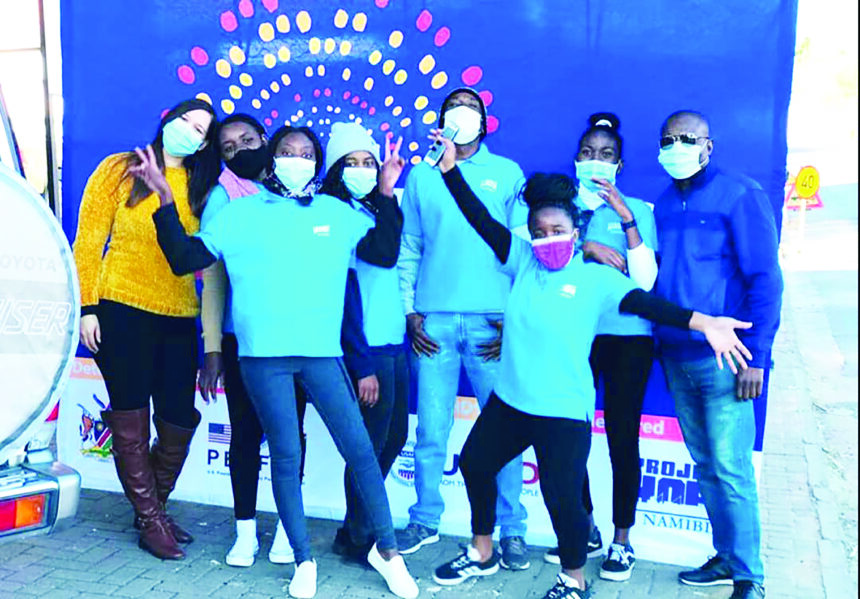Kavetja Ngaizuvare
In the streets of Katutura, where resilience lives on every corner, a group of young women used to gather at the Hakahana Clinic – not just for health services, but to find purpose.
The DREAMS programme, Determined, Resilient, Empowered, AIDS-Free, Mentored and Safe, was their light. Now, that light has fallen.
The project was funded by the United States Agency for International Development (USAID).
In January 2025, USAID issued a sudden stop-work order to all its aid recipients in Namibia.
The directive demanded an immediate halt to all USAID-funded activities, including those at the heart of the DREAMS initiative, pending a 90-day policy review. There was no warning – no transition plan. There was no community meeting to say goodbye. For Selma Amukwaya (22), the clinic was a second home.
“I was lost before DREAMS. I did not know much about my body, HIV prevention or how to even think for myself,” she said.
“Now, it’s gone. We don’t even know why. No one told us anything,” she stated.
Launched in Namibia in 2017, the DREAMS initiative aimed to protect adolescent girls and young women (AGYW) from HIV and gender-based violence.
It empowered them to live safe, healthy and independent lives.
Backed by PEPFAR (the US President’s Emergency Plan for AIDS Relief) and implemented with the support of the Namibian government and local non-governmental organisations, the programme created safe spaces in high-prevalence regions such as Khomas, Zambezi and Oshikoto.
At the Hakahana Clinic in Windhoek, the space buzzed with energy.
Girls between the ages of 15 and 24 would meet with mentors, get tested for HIV, access family planning services, learn life skills, receive career guidance and participate in workshops on self-worth, consent and entrepreneurship.
“I learned how to make soap, budget money, and how to say no to unsafe sex. It gave us strength and dignity,” recalled Tuli Kamati (20).
“Girls just came one day, and the doors were closed,” said a former mentor, who asked not to be named.
“We did not even get to explain. Some of the girls cried. They thought they did something wrong,” she added.
While some remaining funds allowed the programme to run in a limited capacity for a short time, its future now hangs in the balance.
The Namibian Ministry of Health and Social Services has acknowledged the disruption, expressing a desire to sustain services for AGYW.
However, resources are scarce.
The impact of the closure is personal and profound.
Many of the girls face renewed vulnerability to HIV, early pregnancy and violent conditions that the programme had worked tirelessly to prevent. For now, the space at Hakahana Clinic sits quiet.
However, the voices of these young women are growing louder.
They want answers, support and the return of something that once gave them a sense of control over their futures. “Even if they don’t bring DREAMS back, they must not forget us. We are still here. We are still dreaming,” Amukwaya remarked.
–klngaizuvare@icloud.com


